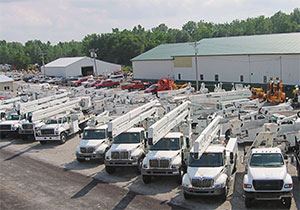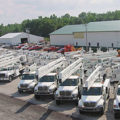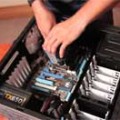Commercial equipment can be expensive. Larger companies are able to afford their own equipment, but smaller ones typically do not have the capital to pay for it outright. There is always the possibility of acquiring additional financing for your small company — but do you really need to?
As a small business owner, you have to consider all of your costs then compare them to alternative options. You need to find the best option to fit your business needs and your budget. That is why you should consider renting your work equipment instead of purchasing them.
The benefits of renting or leasing your company fleet of vehicles or your industrial machinery are many. Along with financial advantages, renting the equipment your business requires comes with additional savings, some of which are explored below.
Save Yourself the Costs
There are a lot of expenses associated with buying work equipment. While some are unavoidable regardless of the method of acquisition like fuel costs for fleet vehicles or an increase in electricity used, the ones mentioned here are the expenses you can expect to save on when you rent your needs rather than buy them.
- Purchase price of the equipment, accounting for finance charges on the loan used to pay for them
- Maintenance costs, including parts and labor, for the lifespan of the piece of equipment
- Taxes and registration fees would be the owner’s responsibility, not the renter’s
- Property rental or purchase for storage purposes may be required with certain equipment purchases
With renting the equipment your company needs, you pay a steady monthly fee that is less than all of these costs combined. You will have some short-term expenses associated with leasing or renting your equipment, such as temporary storage facilities. Even with these factored in, the monthly expenditure is still lower than the cost of buying.
Only Rent as Needed
Renting allows you to adjust your business to the needs of your clients. You can rent the basic equipment required to complete a standard project, or you can supplement your current equipment with additional pieces to help with larger projects or more time-sensitive ones. Specialized equipment can be brought in by leasing it for a specific amount of time to perform a particular, one-time task or you can bring it in for the duration of a unique project.
Fixing the Equipment
The servicing of a broken down utility van or compressor would normally require someone within a company to search for a vendor who can provide them with the best quote for repairs. This can often take time as these vendors are typically in no hurry to provide the quotes since they are competing for the lowest bid, and they are certainly in no hurry to perform the repairs once given the contract.
Renting your tools and machinery bypasses this process. The company owning the equipment is the one responsible for doing all of that. As the renter, you only need to put in a call to the company and inform them of the need for repairs. Depending on the type of equipment and the company leasing it out, they may even have an in-house specialist who can get it back in working order. The cost, as previously mentioned, is the responsibility of the rental company.
Replacement of Dead Equipment
Again, this is not your responsibility when you lease the tools you need to operate your business. If the machinery has expired or the engine on the flatbed truck you are renting is shot beyond repair, you are under no obligation to buy a new one. The rental company will replace the vehicle with another for the duration of the contract, but it is up to them to decide what to do about being one short — that is an issue beyond your concern.









